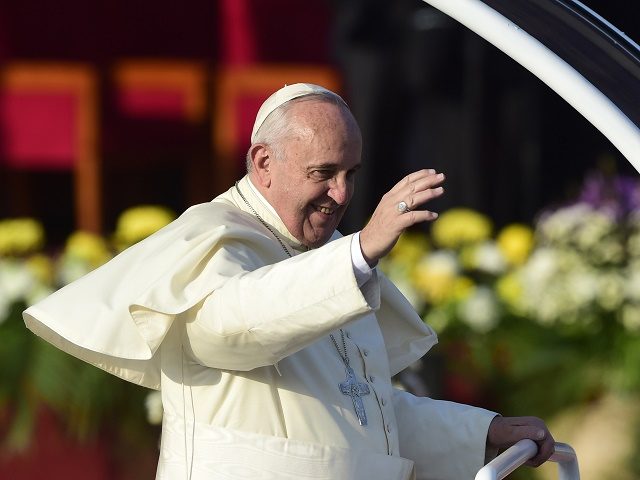Pope Francis has decried what he sees as the “weak reaction” of governments to the climate crisis, while deploring “the ease with which well-founded scientific opinion about the state of our planet is disregarded.”
What is needed, the pontiff suggested, is an “ecological conversion capable of supporting and promoting sustainable development.”
At just two weeks from the one-year anniversary of the Paris agreement to combat climate change (COP21), Pope Francis says that politicians have been “distracted” in implementing important measures to curb carbon emissions.
In his address Monday to members of the Pontifical Academy of Sciences (PAS), Francis blamed the sluggish adoption of the COP21 protocols on the submission of politics “to a technology and an economy which seek profit above all else.”
“Never before has there been such a clear need for science to be at the service of a new global ecological equilibrium,” Francis told his hearers while painting a picture of a world on the verge of “ecological collapse” and a “consequent increase of poverty and social exclusion.”
The Pope said that in the modern world, “we have grown up thinking ourselves owners and masters of nature, authorized to plunder it without any consideration of its hidden potential and laws of development,” which has resulted in a “grave loss to biodiversity, among other ills.”
Francis also expressed his optimistic conviction that scientists, unlike politicians and business people, “work free of political, economic or ideological interests.”
Therefore, scientists are uniquely suited to “develop a cultural model which can face the crisis of climatic change and its social consequences, so that the vast potential of productivity will not be reserved only for the few,” he said.
This model must not remain at the level of theory or mere voluntary association, he added, but should be compulsory and binding.
“It has now become essential to create,” he stated, “a normative system that includes inviolable limits and ensures the protection of ecosystems, before the new forms of power deriving from the techno-economic model causes irreversible harm not only to the environment, but also to our societies, to democracy, to justice and freedom.”
The Pope further suggested that those who question the science behind anthropogenic global warming theories—which he called “well-founded scientific opinion about the state of our planet”—may be prompted by less than noble motivations. Such skeptics are often engaged in “continued wars of domination camouflaged by righteous claims,” he said, which “inflict ever greater harm on the environment and the moral and cultural richness of peoples.”
The Argentine Pope has made environmental concerns one of the core social issues of his pontificate, preaching about the need to protect God’s creation in his very first homily as pope in March 2013.
In 2015, Francis published a controversial encyclical letter on the environment called Laudato Si, urging nations and individuals to exercise more responsible stewardship of the created world.
At the same time, Francis said that he was encouraging debate rather than trying to impose his own understanding of environmental concerns.
“On many concrete questions,” he wrote, “the Church has no reason to offer a definitive opinion; she knows that honest debate must be encouraged among experts, while respecting divergent views.”
“Here I would state once more that the Church does not presume to settle scientific questions or to replace politics,” Francis said. “But I am concerned to encourage an honest and open debate so that particular interests or ideologies will not prejudice the common good.”
Francis also said it is necessary to create “a social debate” in which of those involved in any way can explain their problems and “have access to adequate and reliable information in order to make decisions for the common good,” something rarely seen in contemporary discussions of climate change that tend to exclude climate change skeptics.
Follow Thomas D. Williams on Twitter Follow @tdwilliamsrome

COMMENTS
Please let us know if you're having issues with commenting.